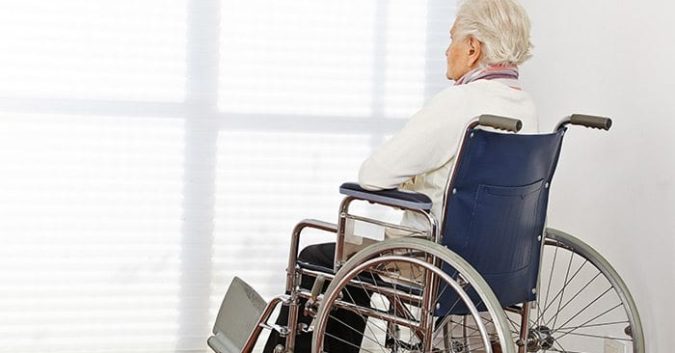It may be shocking and frustrating to learn that, up until the tail end of last week, residents of long-term care facilities who were subjected to neglect and abuse by facility staff members, were also without basic legal rights. Thankfully, all of this changed on September 28th, when the federal Department of Health and Human Services (DHSS) issued a ruling that finally seeks to protect vulnerable nursing home residents.
The new rule will remedy the fact that victims of nursing homes often find themselves unable to take their cases to public trial. Instead, they are forced into arbitration, which involves a decision made not by a judge but by an arbiter (who could also be a private attorney and have special corporate interests). It comes as no surprise that awards issued in arbitration are, on average, 35 percent lower than those issued in court.
How is this allowed to happen? Well, many of these long-term care facilities require that residents contractually agree to this up-front in order to live there. In effect, this requires the elderly and sick to choose between their health and their full legal rights — a downright horrible, unfair, and unnecessary, decision to ask anyone to make.
Centers for Medicare & Medicaid Services Just Changed Everything
The recent ruling is the first major overhaul to nursing home regulations since 1991, and it changes the landscape of how many nursing home abuse cases are approached and dealt with. For years, long-term care facility victims have needlessly suffered and, all too often, have been unable to receive adequate justice for that suffering.
Why? Well, it is important to remember that private arbitration is just that — private. When cases of neglect, abuse, injury, and death are not given the opportunity to be presented in a public court, victims’ voices are silenced. The public never learns about the crimes committed — and the corporations that run such homes are allowed to continue their operations as usual, unscathed.
The new ruling makes use of the fact that most nursing homes rely on funding from the Centers for Medicare & Medicaid Services (CMS). As of last week, if facilities want to continue to receive that funding, they must, according to the official document, “not enter into an agreement for binding arbitration with a resident or their representative until after a dispute arises between the parties.”
What this means is that elder or nursing home abuse victims may still choose arbitration as a means of settling a case — if they wish to do so — but they cannot be forced into agreeing to arbitration before the fact, upon signing initial documents and moving into a facility.
Finally, We Can Hold Nursing Homes Accountable
Andy Slavitt, the acting administrator for CMS, stresses the rule’s far-reaching and positive effects, which will “improve the care and safety of the nearly 1.5 million residents in the more than 15,000 long-term care facilities that participate in the Medicare and Medicaid programs.” Wow. That’s a lot of people who, before this moment, often found themselves, in a lot of ways, defenseless.
Currently, elder abuse occurs at 1 out of every 3 nursing homes. Such a high likelihood of abuse is not only upsetting, it’s outright unacceptable. Certainly, the increased ability to bring long-term care facilities to trial will, over time, help decrease the overwhelming and disgusting amount of negligence and abuse. Needless to say, many are overjoyed by this ruling — though it seems ridiculous that this right wasn’t preserved all along.
This issue serves as a reminder of the constant and inappropriate greed-based influence that corporations have over the health and safety of the general public. This past week marks a major turning point in victims’ rights. Let’s keep the ball moving in the direction of justice, and hold unlawful and deceitful nursing homes accountable — for the health and safety of us all.
